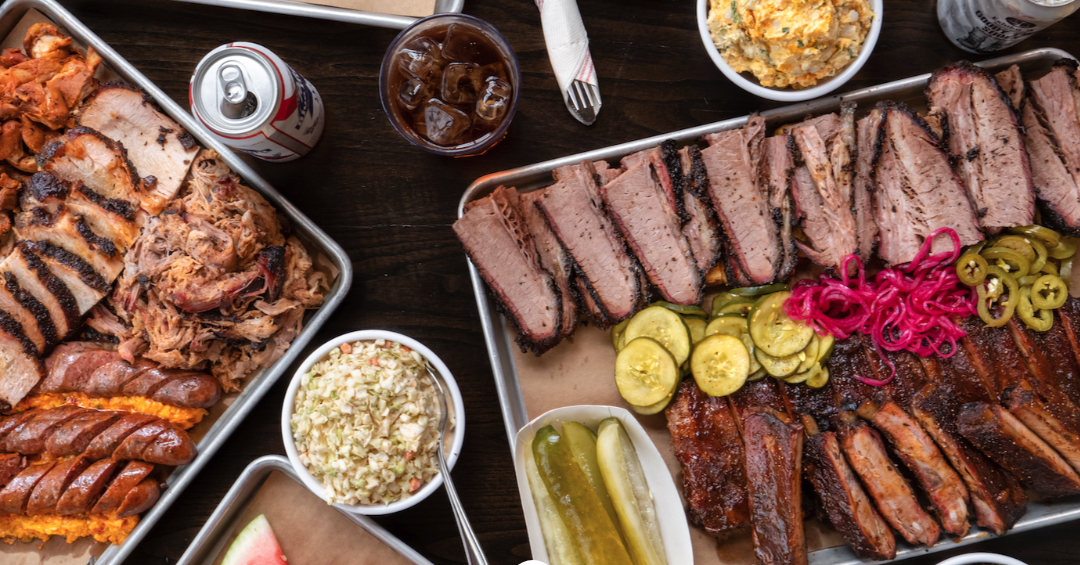Out of Boston, The Smoke Shop BBQ is the next Food On Demand Outstanding Operator.
Pitmaster and owner Andy Husbands likes a challenge, and found plenty moving beyond his time as a successful, single-unit restaurateur into the world of barbecue with a focus on building a multi-unit organization.
The first Smoke Shop BBQ opened in Boston in 2016, and eight years later–with a pandemic in the middle—has taken a slow-but-steady approach in reaching six locations throughout the metropolitan area.
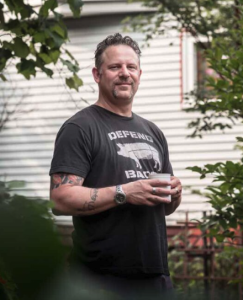
The Smoke Shop BBQ Owner, Andy Husbands
With eventual plans to grow beyond the Boston MSA, Husband and his business partner Brian Lesser have their eyes on the two additional locations they hope to open this year.
Expanding on their initial success has been a result of learning to work on the business rather than in it on the front lines, improving its packaging, branding and re-heating for off-premises customers, and growing the delivery side of the business beyond 20 percent.
Increasing perceived value
“I successfully ignored it before the pandemic,” Husbands said of the delivery side of the business, which quickly morphed into a critical ordering channel during the first lockdown. “You really get to see what people are made of during really tough times, and it was very rewarding.”
Of course, that transition wasn’t easy during the moment, or afterwards when the duo started seeing a theme in customer reviews talking about the price and highlighting a perceived lack of value given the cost and time requirements of takeout and delivery.
Addressing those concerns head-on, Smoke Shop explored and invested in better packaging, nicer labels, and giving customers detailed instructions to reheat their meals for the best-possible at-home experience.
To Husbands, that strategy of increasing the perceived value was far superior to sourcing less expensive cuts of meat, which was already a challenge due to the post-pandemic supply chain issues that impacted all restaurants.
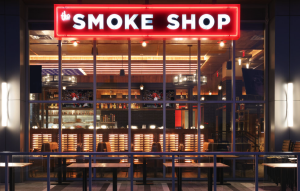
The Smoke Shop BBQ storefront in East Boston.
After making those key changes, the business built a personal relationship with their DoorDash rep that has led to countless good things for the business.
Now a member of DoorDash’s Restaurant Advisory Council, Husbands is emphatic about his desire to show other restaurateurs that delivery isn’t just extra volume, “I can show you that it’s very profitable.”
That confidence in third-party delivery economics also resulted from a business consultant that offered up free consulting to the restaurant during the pandemic. They created a spreadsheet that’s still in use today outlining the costs, fees and packaging, stressing that existing expenses like labor, rent, electricity and other costs of doing business are already paid by the non-off-premises orders coming into its restaurants.
“I wouldn’t think of it as a marketing expense [even though] I do book it that way in my P&L,” Husbands said about delivery expenses. “It’s actual profit, and I can prove to anybody as long as they have a business that’s actually making money or breaking even.”
While Smoke Shop was previously exclusive with DoorDash, which he said is the leading delivery provider in the market, the business has since expanded to delivery orders with Uber Eats and Grubhub.
That transition lowered the total volume coming in through DoorDash by approximately 20 percent, but added more than that difference by orders coming from the other delivery providers brought into the business.
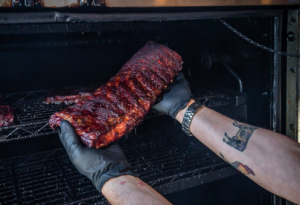 In addition, delivery check averages have continued increasing as its performance and value quotient rose in kind. Depending on the season, an average delivery check falls somewhere between $45 and $52, which is higher than in-store averages.
In addition, delivery check averages have continued increasing as its performance and value quotient rose in kind. Depending on the season, an average delivery check falls somewhere between $45 and $52, which is higher than in-store averages.
Smoke Shop has also focused on high-volume holidays, like Thanksgiving, Christmas and the Super Bowl, where the restaurant offers boxed combo orders that are designed for feeding large groups at home.
Implementing Toast POS recently helped reduce manual data entry of the previous system, which led to fewer mistakes and marginally faster delivery times across the board. For 2024, the brand is launching its first loyalty program through Incentivio.
Feeling like the delivery side of the business is where it needs to be, Husbands said his biggest challenge is continual coaching now that he’s not the primary pitmaster manning the smoker. Likening the work to coaching a football team, he’s enjoying learning these new skills that are so much different than what he needed during his time as a single-unit operator.
“I made a good living, and it was a fun, creative outlet with a really amazing team, but I wanted more and I was just ready for more,” Husbands said of his professional evolution.
His original plan was to open a handful of izakayas, but said doubling down on his long-standing barbecue competitions ended up being exactly the kind of challenge he was looking for in his life.
“I’ve been fortunate enough to not have to do anything I don’t enjoy during my career,” he said. “That doesn’t mean there’s not a part of my job that isn’t challenging, but overall I do enjoy it.”
Taking care to avoid the trap of growing too quickly just because the food is popular, Husbands said his goal is being present in the moment, focusing on months into the future rather than years.
“Working on new spaces, thinking about design, thinking about what’s next,” he added, that kind of stuff … is going to be more successful for me than living in some fantasy of winning the lottery.”
The Outstanding Operators Program is highlighting 20 innovative brands taking creative paths to success with all things off-premises. Winners receive a $1000 charitable donation to the organization of choice and will be recognized on-stage at the 2024 Food On Demand Conference. Register today!
The Outstanding Operator program is sponsored by these industry-leading partners.
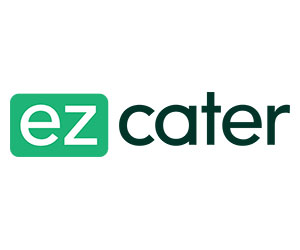 |
 |
 |

